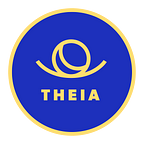Sandra Saldana who is CEO and co-founder of Alva Health. During her first year in her MBA program at Yale School of Management, Sandra connected with two professors in the Yale School of Medicine, Dr. Kevin Sheth and Dr. Hitten Zaveri, who had co-invented a technology — machine learning algorithms coupled with a device for early identification of stroke symptoms — underlying what is today Alva Health. Given that about 1.3 million people in the U.S. are affected by stroke annually, Alva aims to detect stroke earlier to enable the subsequent administration of appropriate interventions in a timely fashion. Prior to Alva, Sandra Saldana received a PhD in Cancer Biology from The University of Texas MD Anderson Cancer Center.
Major takeaways from our conversation:
Cater to a population that has been traditionally underserved
Saldana alludes to the fact that, on average, individuals who come up with innovations tend to be younger, aiming to solve their own problems. Given this, there has unfortunately been very little innovation to solve the problems the older, aging population. Specifically, Saldana and her co-founders saw an unmet need in stroke detection.
“You’ve got a huge portion of the population that has over 83% of the wealth in the United States and [is] not being served by technology in the way that other populations are being served.”
For decades, IV tissue plasminogen activator (tPA) is the FDA-approved therapy of choice for stroke, however, a substantial fraction of patients do not receive this therapy due to delays in seeking medical attention. Therefore, Alva Health is creating a medical device, specifically a set of lightweight wristbands, that contain sensors to monitor individuals and look for patterns of stroke. When the sensors detect stroke-like patterns, the patient’s family members or caregivers are notified, and they can quickly get the patient the care he or she may need by either checking-in on the patient or calling 911.
Saldana is hopeful that more technologies like what Alva is building will emerge to help older individuals. For example, she notes that Apple recently integrated interesting medical features, such as fall detection and atrial fibrillation detection, into its Apple Watch. Moreover, Rock Health highlighted opportunities for digital health innovation in the aging space, including designing products that older individuals are comfortable using. For example, voice-oriented products might be readily adopted given that older individuals are more comfortable with phone than video.
Determine what your customers want
Alva participated in the National Science Foundation’s Innovation Corps (NSF I-Corps) program, which is centered around customer discovery, to learn how to best serve the needs of stroke patients.
“[We] went out and interviewed over 100 potential customers to try and understand what the problem is for stroke patients, family members, caregivers, and people in the healthcare systems…that’s where we found out that the majority of the burden for stroke patients is really falling on the patients and their family members. ”
This was the impetus for creating a technology to directly serve patients and their family members or caregivers rather than providers.
Moreover, Alva was able to partner with a local assisted living facility to gather additional feedback regarding usability, form-factor, and other inputs in the design its stroke detection wearable.
“Through talking to them, getting to know [the residents at the assisted living facility], their daily activities, and their comfort level with wearables, we really learned a lot about what they’re looking for [in a product]…it has to be comfortable, it has to be easy, it has to be attractive.”
Be humble and honest about your limitations
Saldana highlights that it is important as a non-technical founder to surround yourself with technical experts and other people who can help fill in your knowledge gaps.
“I think just being humble and acknowledging:
What are the areas [in which] I need help?
Where do I need a partner?”
In addition, Saldana shares that she is seeks out female innovators in the healthcare space to learn about how they have preserved through challenges. This has given her the confidence to keep moving forward even when she hits an obstacle.
“It is important to have mentors and advisors who have worked in [the] space. Look at what are the areas where you think you could really use some help, and find those experts who can help you navigate through the challenges.”
Finally, Saldana encourages all of us think broadly about how we might translate our own work or the work of others to improve patient lives.
“When I was in grad school, everyone around me had their head down. You get lost in the science. You are focused on the next grant or paper. But I think that it is important to think about the practical side of what you are doing.”
Interested in medical devices, underserved patient populations, or customer discovery? Check out Spotlight on Women in Healthcare Ventures on Spotify and Anchor!
Theia is a 501(c)(3) non-profit dedicated to inspiring and empowering the next generation of women entrepreneurs and investors in healthcare. Visit our website to join our community and access resources that will support your entrepreneurial journey and pursuit of changing healthcare.
Story written by Luiza Perez , Priya Kumar, Katie Donahey, and Ankeeta Shah.
